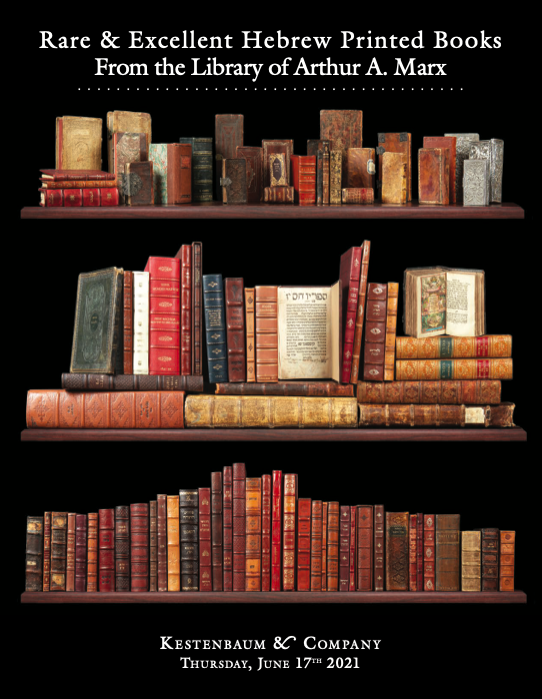Abudraham [commentary to the prayers].

Auction 94 |
Thursday, June 17th,
2021 at 11:00am
Rare & Excellent Hebrew Printed Books: From the Library of Arthur A. Marx
Lot 7
ABUDRAHAM, DAVID BEN JOSEPH.
Abudraham [commentary to the prayers].
Lisbon: Eliezer (Toledano) 1489
Est: $100,000 - $150,000
PRICE REALIZED $90,000
<<THE SECOND BOOK PRINTED IN LISBON.>>
An invaluable encyclopedia concerning the ritual customs of Spain, France,.
Provence and Germany.
David ben Joseph Abudraham of Seville wrote this liturgical commentary in.
1340. He was motivated to write the work in response to contemporary liturgical confusion: “The lengthy exile and intensive persecution have led to a variety of customs in different kingdoms so that most ordinary folk, when they offer their prayers to God, are ignorant about their meaning and have no understanding of the sense and structure of liturgical practices.” Abudraham’s work accordingly not only provides clear rules, but devotes much space to the reasons behind many customs, as well as commenting on the text of the prayers and piyutim. The work offers commentary to all daily, Sabbath, monthly, Festival and fast-day prayers, also provides guidance on lectionaries, the calendar, as well as an extensive treatise upon the various benedictions. See S. C. Reif, Judaism and Hebrew Prayer (1993) pp. 204-5.
“Of all the [incunable] Hebrew presses that flourished in the Iberian Peninsula, that of Lisbon - the last of them all - was typographically the best equipped and most successful.” See J. Bloch, Early Hebrew Printing in Spain and Portugal (1938) pp. 32-3.
The opening leaf of this first edition is especially rare and is lacking in many copies. Indeed, Brad Sabin Hill states, Catalogue of the the Jacob M. Lowy Collection, National Library of Canada (1981) no. 92 “this may be the only complete copy in the world.”
